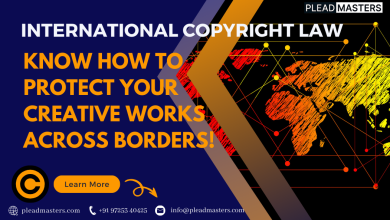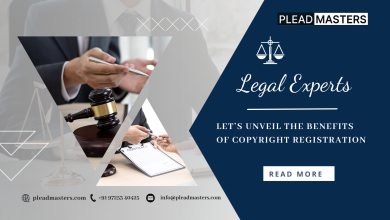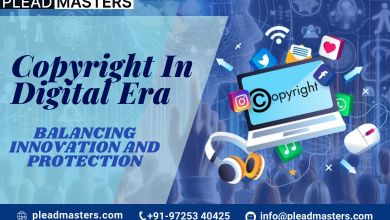Navigating the Copyright Office: Tips for a Smooth Registration Process

Copyright Office
The purpose of administering certain provisions of the Copyright Act has led to the establishment of the Copyright Office. Section 9 of the Copyright Act of 1957 necessitates the establishment of the copyright office to meet the objectives and purposes enshrined under the statutory provisions of the Copyright Act. The provision further provides for the appointment of the Registrar of Copyright by the Union Government to act as a direct controller of the copyright office under its superintendence and direction. Moreover, the Copyright Office has been provided to hold its own seal.
Section 10 of the Copyright Act provides for the appointment of one or more Deputy Registrar for assisting the Copyright Registrar. Further, the Deputy Registrar is liable to discharge such functions of the Registrar as may be assigned to him by the Registrar, under the superintendence and direction of the Registrar.
The Copyright Office is presently situated at Boudhik Sampada Bhawan, Plot No. 32, Sector 14, Dwarka, New Delhi-110078.
Copyright Registration Process
Before discussing the process of copyright registration, it is imperative to know the type of original works for which a copyright registration application can be filed. Copyright registration in India can be filed for the following types of works if they are original:
- Literary
- Artistic
- Dramatic
- Computer Software
- Musical Works
- Cinematograph Films
- Sound Recordings.
Now that we know the types of works for which copyright registration can be sought, let us acquaint ourselves with the registration process.
1. Filing of the Application
The application for copyright registration must be submitted before the Copyright Office under Form XIV along with the necessary fees depending upon the nature of the work. The payment can be made either online or through a demand draft. After filing, the Applicant is allotted a unique diary number that can be used for tracking the status of the application.
2. Examination
- No Objection: After filing the application and submitting the work in triplicate, there is a mandatory waiting period of 30 days during which anyone may raise an objection against the registration of the work. However, if there is no objection then the examiner checks the work for discrepancies and if there is none then he may accept the application for registration. However, if there is a discrepancy then the Examiner will inform the applicant about the same and ask for the removal of such discrepancy.
- Objection: If there is an objection against the copyright registration, then the examiner may send a letter to both the applicant and the objecting parties asking them for their reply. After receiving the reply, the examiner may call for a hearing to be attended by both parties. After listening to both sides at the hearing, the examiner may accept the application or let the objection sustain leading to the rejection of the application.
3. Registration
After successful acceptance of the copyright registration application or removal of the objection, the Copyright Office proceeds to enter the particulars of the registration in the register and issues the registration certificate concerning the work.
Copyright Application Requirements
The application requirements depend mainly on the nature of the work. However, the following are the lists of necessary documents for the application.
- Published works must be triplicate copies.
- Unpublished works must be filed in duplicate copies of the manuscript.
- If the filing is to be done by an Advocate/Agent, then special power of attorney must be signed and furnished in favor of the Advocate.
- If the work does not belong to the Applicant, then authorization on the Applicant’s behalf by the owner.
- Information providing the title and language of the work.
- Particulars containing the name, address, and nationality of the applicant.
- If the applicant is not the author, a document containing the name, address, and nationality of the author, and if the author has demised, then the date of his demise.
- If the work is to be used on a product, then a no-objection certificate (TM – C) from the trademark office is required.
- If the applicant is other than the author, a no-objection certificate from the author is required. In this case, authorization of the author may also be required.
- If a person’s image is present in the work, then a no-objection certificate from such person.
- In case the publisher is not the applicant, a no-objection certificate from the publisher is required.
- If the work is published, the year and address of the first publication.
- Information regarding the year and country of subsequent publications.
- In the case of copyright for software, source code and object code are required.
Copyright Law
In India, copyright law and its legalities are governed by the Indian Copyright Act of 1957, and the Copyright Rules 2013. Aside from these domestic legislations, various international conventions like the Berne Convention for the Protection of Literary and Artistic Works, 1886; the Universal Copyright Convention 1952; The WIPO Performances and Phonograms Treaty (WPPT), 1996 and the WIPO Copyright Treaty (WCT), 1996 guide the copyright laws and rules.
Copyright Attorney
A copyright attorney assists creators and copyright holders in understanding the provisions of the copyright act and protecting their interests. There exist several intricacies in the provisions of the Act that can be appreciated solely by a professional and well-informed Copyright Attorney who can provide proper guidance. A Copyright Attorney is purported to help people who need assistance in registering their work under the protection of the Copyright Act and for the same a power of attorney is to be filed alongside the copyright registration application. Aside from all these, filing the copyright application until its registration is a long process where the assistance of an expert is necessary and that is where a copyright attorney may help. Aside from that, a copyright attorney may help not only in filing, prosecution, or registration but also by providing services like renewal and enforcement.




